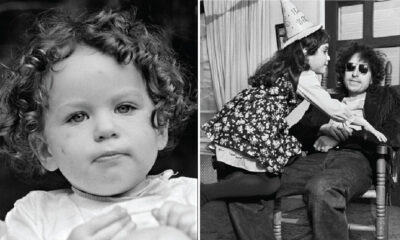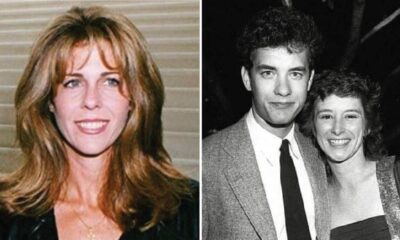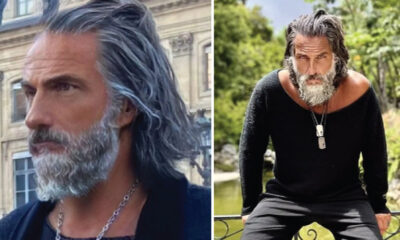Blog
Watchmenontheall Calvin: A Symbolic Dive into the Watchmen Universe

The Watchmen graphic novel, created by Alan Moore and Dave Gibbons, is a landmark in the world of literature and graphic novels. It challenges readers to reflect on morality, justice, and the human experience. Among the discussions sparked by this masterpiece is the concept of “watchmenontheall Calvin,” a figure often debated within the narrative’s themes. While Calvin is not an explicit character in Watchmen, his symbolic presence adds depth to the story. In this article, we will explore the significance of Calvin, his thematic connections, and how he reflects broader ideas in the Watchmen universe.
Understanding the Watchmen Universe
Published as a twelve-issue series from 1986 to 1987 by DC Comics, Watchmen is set in an alternate history during the Cold War. Superheroes in this world are part of society but are deeply flawed individuals. The story critiques traditional notions of heroism, power, and morality.
The characters in Watchmen are far from perfect. Figures like Rorschach, Dr. Manhattan, and Ozymandias grapple with ethical dilemmas and the consequences of their decisions. This complex portrayal of superheroes forms the foundation of Watchmen’s narrative, raising questions about justice and humanity’s darker aspects.
Top Pick: What is Bebasinindo?: Everything You Need to Know
Who Is Calvin in Watchmenontheall?
“Watchmenontheall Calvin” often appears in discussions about the deeper themes of Watchmen. Calvin is not a character from the original graphic novel but is instead a symbolic figure representing ideals like innocence and moral clarity. These qualities contrast sharply with the morally ambiguous world of Watchmen.
Calvin embodies a sense of purity and hope that the adult characters have lost. While he does not physically appear in the story, Calvin’s symbolic presence influences interpretations of the narrative and its exploration of human nature.
Calvin as a Symbol of Innocence
Calvin represents the innocence of youth—a stark contrast to the corruption and disillusionment of the main characters. The world of Watchmen is dark and filled with morally grey decisions. Calvin’s symbolic innocence highlights what is lost as individuals face harsh realities.
The characters in Watchmen—from Laurie Juspeczyk (Silk Spectre) to Dr. Manhattan—struggle with personal and societal corruption. Calvin stands as a reminder of the purity they once had but can no longer reclaim. This loss of innocence reflects the broader decay of society within the Watchmen universe.
Themes Surrounding Calvin in Watchmen
Heroism in Watchmen is not clear-cut. Characters like Rorschach and Ozymandias make morally complex choices, often blurring the line between right and wrong. Calvin, as a symbol of untainted ideals, challenges these characters’ perceptions of what it means to be a hero. He embodies the moral clarity they lack.
The juxtaposition of innocence and corruption is central to Calvin’s symbolic role. In a world where even superheroes are flawed, Calvin represents an aspirational purity. His presence underscores the darker realities of Watchmen, creating a powerful contrast between ideals and the compromises people make.
Calvin symbolizes hope in a world dominated by disillusionment. While the adult characters navigate a chaotic moral landscape, Calvin’s figure offers a glimpse of what could be—a world guided by justice, community, and emotional vulnerability. His symbolic role encourages readers to hold onto hope despite life’s challenges.
Top Pick: VCWeather.org: Real-Time Updates, Historical Data, and More at Your Fingertips
Calvin’s Influence on Characters and Readers
Though Calvin does not physically exist in the Watchmen narrative, his symbolic presence influences how readers view the characters’ decisions. For instance, Laurie Juspeczyk’s journey is marked by a struggle to reconcile her identity with the legacy of her parents. Calvin’s innocence serves as a foil to her challenges, highlighting the complexities of adulthood.
Calvin’s symbolism extends beyond the story, prompting readers to reflect on their own values. In a narrative filled with moral ambiguity, Calvin’s figure encourages introspection about justice, humanity, and the possibility of growth. His presence adds depth to the themes of Watchmen, making the story more relatable.
Fan Theories and the Cultural Impact of Calvin
Fans have often debated Calvin’s role in the Watchmen universe. Some view him as a representation of what the characters aspire to be, while others see him as a critique of unattainable ideals. These discussions have kept the concept of “watchmenontheall Calvin” alive in fan communities and academic circles.
Calvin’s symbolic presence also reflects broader societal issues. In a world where power often corrupts, Calvin reminds us of the importance of maintaining ethical principles and seeking a better path forward.
Lessons from Calvin in Watchmen
Calvin’s symbolic role in Watchmen provides several key takeaways. He challenges traditional ideas of heroism, highlighting the need for moral clarity in a complex world. His figure encourages readers to reflect on their own choices and the ideals they hold dear.
Despite the darkness of Watchmen’s narrative, Calvin offers a beacon of hope. His symbolic presence reminds us that even amidst turmoil, there is potential for growth, justice, and a meaningful existence.
Final Thoughts
“Watchmenontheall Calvin” may not be a literal character in Watchmen, but his symbolic importance cannot be overstated. Representing innocence, hope, and moral clarity, Calvin provides a counterpoint to the story’s themes of corruption and moral ambiguity. Through Calvin, readers are invited to explore deeper questions about justice, humanity, and the complexities of heroism.
As we continue to analyze Watchmen, Calvin’s presence inspires ongoing discussions about morality and the human experience. His symbolic role adds depth to an already intricate narrative, making Watchmen a timeless exploration of what it means to navigate a world filled with shades of grey.
(FAQs)
Is Calvin a real character in Watchmen?
No, Calvin is not a real character in Watchmen. Instead, he symbolizes innocence, hope, and moral clarity, serving as a contrast to the flawed superheroes in the story.
Why is Calvin important if he doesn’t exist in the story?
Calvin represents ideals like purity and justice, which are often lost in the morally complex world of Watchmen. His symbolic role adds depth to the narrative and prompts readers to reflect on societal corruption.
Does Calvin influence any Watchmen characters?
While Calvin isn’t directly involved, his symbolic innocence contrasts with characters like Laurie Juspeczyk and Rorschach, highlighting their struggles with moral ambiguity and personal flaws.
What does “watchmenontheall Calvin” mean?
It refers to discussions about Calvin’s symbolic role in Watchmen, connecting his ideals with the narrative’s themes of justice, morality, and societal decay.
How does Calvin challenge traditional superhero ideals?
Calvin’s symbolic presence questions the flawed heroism of characters like Ozymandias and Rorschach, offering an alternative vision of untainted morality and hope amidst chaos.
For more information, visit Legitmagazine
-

 News12 months ago
News12 months agoMeet Andrew Lincoln’s Wife Gael Anderson: Their Relationship, Career, and Net Worth
-

 Celebrity12 months ago
Celebrity12 months agoAnna Dylan’s Biography: All About Bob Dylan’s Talented Daughter
-

 News11 months ago
News11 months agoSamantha Lewes: The Untold Story of Tom Hanks’s First Wife and Her Legacy
-

 Life Style12 months ago
Life Style12 months agoIlan Tobianah’s Life Story: Career Highlights, Family, and Net Worth



